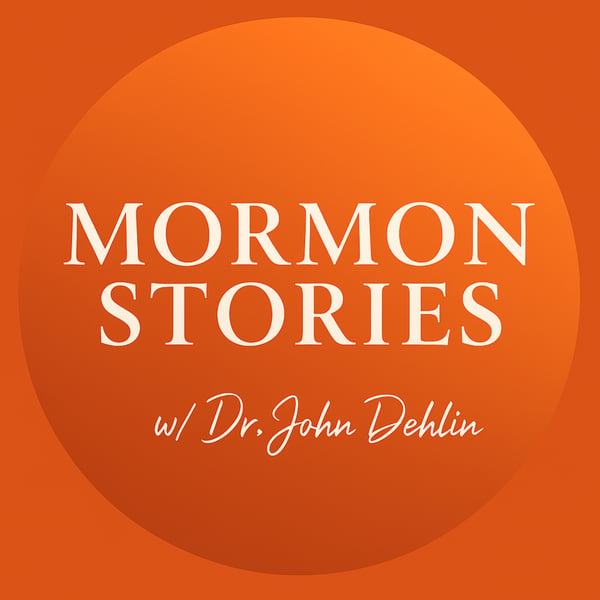 McMurrin Lecture: In her lecture, Flake defines an intellectual as one who loves and is committed to the life of the mind, one for whom thought is both a delight and a necessity, a source as well as means for human flourishing. This does not mean a life without conflicts, as illustrated by three intellectuals - Lowell Bennion, Sterling McMurrin, and Obert Tanner. Flake will consider their intellectual lives in relation to the religious culture from which they came. Doing so will tell us something about whether there is a Mormon intellectual tradition and, if so, what are its distinctive features.
McMurrin Lecture: In her lecture, Flake defines an intellectual as one who loves and is committed to the life of the mind, one for whom thought is both a delight and a necessity, a source as well as means for human flourishing. This does not mean a life without conflicts, as illustrated by three intellectuals - Lowell Bennion, Sterling McMurrin, and Obert Tanner. Flake will consider their intellectual lives in relation to the religious culture from which they came. Doing so will tell us something about whether there is a Mormon intellectual tradition and, if so, what are its distinctive features.
Kathleen Flake holds the Richard L. Bushman Chair of Mormon Studies at the University of Virginia. She is the author of The Politics of American Religious Identity: The Seating of Senator Reed Smoot, Mormon Apostle (University of North Carolina Press, 2004).
Professor Flake has been awarded grants from the Mellon Foundation, Lily Endowment, Pew Charitable Trusts, and American Philosophical Society. She has held office in the American Academy of Religion, the American Society of Church History, and the Southeastern Commission for the Study of Religion. Frequently invited to comment on Mormonism in the news, she is also a panelist for the Washington Post/Newsweek "On Faith" blog.

Symposium: Mormonism is often seen as a religion of conformity, with a hierarchy in tight control of members’ beliefs and behavior. Yet this perspective misses a rich tradition of intellectual independence and principled dissent. With an eye to the present and future, the Tanner Humanities Center will offer a unique symposium on the lives and legacies of Sterling M. McMurrin, Obert C. Tanner, and Lowell L. Bennion. Their stories reveal the tensions between faith and reason, conformity and dissent. This symposium will mark the 25th anniversary of the founding of the Obert C. and Grace A. Tanner Humanities Center.
Panels include “Challenge of Conscience: Sterling M. McMurrin” (9:00-10:30 AM), with Bob Goldberg (Chair), Jack Newell, James Clayton, and Brian Birch; “Challenge of Loyalty: Lowell Bennion” (11:00 AM-12:30 PM), with Irene Fisher (Chair), Greg Prince, Tony Morgan, Sam Allen, and Emma Lou Thayne; and “Challenge of Faith: Obert C. Tanner” (1:30-3:00 PM), with Greg Thompson (Chair), Kent Murdock, Bob Goldberg, and Grethe Peterson. A concluding panel, titled “Public Men and the Challenge of Their Private Worlds” (3:30-5:00 PM), will focus upon the personal, intellectual, and working relationships that existed among these men, with panelists Linda King Newell (Chair), Carolyn Tanner Irish, Ellen Bennion Stone, Charlotte Hansen Terry, and Bill McMurrin.
These three intellectuals who shared a determination to act were rooted in Mormonism, but possessed distinctive visions that penetrated beyond their treasured religious heritage and drove them to embrace—and respond to—the pressing social, cultural, and political issues of their time. With mutual respect, but using distinctive methods, Tanner, McMurrin and Bennion shared a passion for justice and impatience with racial discrimination in their church and across American society. At various points in their careers, they served the LDS Church, the University of Utah, their state, and the nation in pursuit of their visions of a more enlightened and humane society.
Pursuing justice and adhering to conscience brought its own rewards, but also exacted a cost. As Director of the University of Utah’s LDS Institute of Religion, Lowell Bennion chafed at supporting church authorities in their denial of the priesthood to African American men. Largely over this issue, he surrendered this post, swallowed his disappointment, and vigorously channeled his religious instincts into serving the needy in Salt Lake City. Sterling McMurrin chose to proclaim himself a heretic and relished that identity, but lost friendships and some sense of community. Obert Tanner, a closet skeptic, muffled his doubt and kept his silence to play prominent roles in the life of his country, state, and city.
Symposium speakers and panelists will not only examine the specific, contemporary impacts of Lowell Bennion, Sterling McMurrin, and O.C. Tanner, but also consider their enduring legacies on the issues facing the Mormon Church today: the inclusion of women more fully in church leadership circles, the need to face painful facets of church history more honestly, the challenge of retaining the engagement or affiliation of socially and culturally liberal members and young adults, the quest to understand the effects of new technologies on Mormon practices and beliefs, and other concerns of our time. A concluding panel will focus upon the personal, intellectual, and working relationships that existed among these men.
The Tanner Center is partnering with the College of Humanities, Smith-Pettit Foundation, and Michael Morris to bring you this event.

